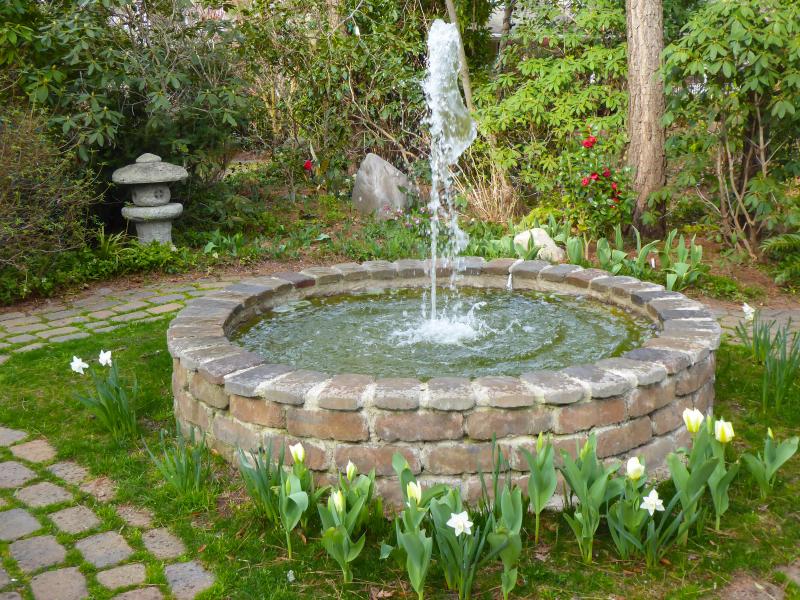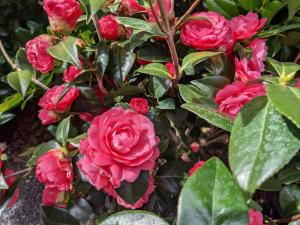Spring has sprung at Mill Pond Garden, and open days are set for 10 a.m. to 12 p.m., Sundays, March 20 and 27.
Garden open days have an admission fee of $15 per car admitting all occupants. To make a reservation, go to millpondgarden.com.
Mill Pond Garden celebrates the garden awakening from winter to spring with flowering kales, camellias, spirea, pieris, edgeworthia, pansies, daffodils, tulips, crocus, iris and many more ephemerals.
Timely local gardening tips include pulling winter weeds before they flower and seed, starting seeds for vegetables and annual flowering plants, pruning woody shrubs and trees, cutting back last year’s dead or browning perennial tops or evergreen foliage, and fertilizing lawns, trees, shrubs, and perennial beds toward the end of March, preferably with organic fertilizers.
It is also time now to clean out bird nesting boxes and dust the interiors with some powdered sulfur to kill and deter mites.
For starting seeds, use only the most reputable seed companies and make sure the packets are fresh. Many professional growers use Johnny’s Seeds, a professional online seed company; Mill Pond Garden has no connection with it.
Another best practice for seed freshness is to save one’s own by letting a few plants go to seed. Pull the plant after seeds ripen and hang it upside down in the garage for a couple months, then collect and save the seeds in a labeled clear plastic bag in the refrigerator, not freezer. When starting seeds, soak them for a day in tepid water to break their dormancy and get them ready to start germinating.
Don’t bury seeds to plant them; just press gently into the soil surface and water gently. Seedlings are temperamental and often fail from human error. The key is keeping them moist when getting their first roots and first two leaves. After those first two leaves, let the seedlings get almost dry before watering again. Overwatering or poor drainage can be fatal, causing damping off and death from fungal infection. Keep seedlings warm, above 65 degrees F.
Vegetables like cucumbers and squash should be planted in late June, as these plants require very hot weather to germinate and thrive. Starting them too early generally produces weak plants, and the Cape Region is notorious for having a cold nor’easter even in June, with highs in the mid-40s for a day or two. Likewise, hold off on planting tomatoes and basil until late June; they too are heat lovers and if chilled early, they seldom recover vigor or perform well.
Now is also the time to plant shrubs, trees and perennials. Mill Pond Garden recommends the following deer-resistant choices: Abelia, mountain laurel, bayberry, inkberry, pieris, boxwood, crape myrtle, caryopteris, spirea, flowering quince, lilac, forsythia, needle palm and gardenia.
Flowering perennial plants that deer do not eat include: Yucca, allium, catmint, red hot poker, lavender, yarrow, monkshood, anemone, larkspur, wild hardy geranium, ehellebore, astilbe, foxglove, salvia, snakeroot, artemisia, betony, sedum and liriope.
Mill Pond Garden is the Cape Region’s only public horticultural botanical garden and a certified nonprofit entity, a holistic, four-season garden where local gardeners can see what plants do well in this region and get reliable horticultural information.
Located at 31401 Melloy Court on Red Mil Pond, the garden is open to the public on about 20 open days per year at peaks of change in garden flowering so every visit is different and delightful. Subscribe free on the website, millpondgarden.com.























































